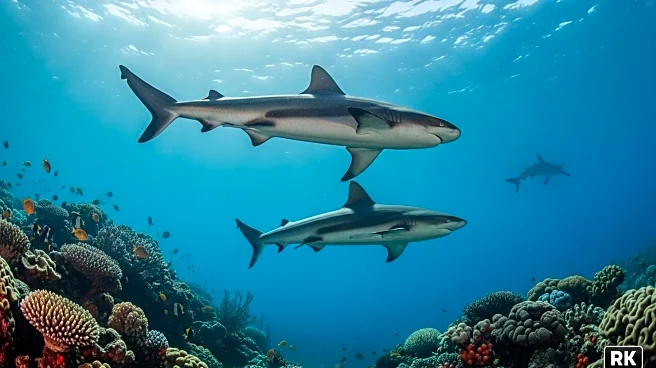What's Happening?
Marine biologist Hugo Lassauce from the University of the Sunshine Coast in Australia has recorded a rare instance of Indo-Pacific leopard sharks mating in the wild off the coast of New Caledonia. This marks the first documented case of such behavior for this endangered species, known for its distinctive spotted pattern. The footage was captured as part of a year-long monitoring program by the Seattle Aquarium, aimed at understanding and conserving these sharks. The Indo-Pacific leopard shark, also known as the zebra shark, is nearly extinct due to overfishing, and efforts are underway to repopulate their native habitats through initiatives like ReShark, which involves breeding sharks in captivity and releasing them into the ocean.
Why It's Important?
The documentation of Indo-Pacific leopard sharks mating in the wild is significant for marine biology and conservation efforts. It provides valuable insights into the reproductive behaviors of an endangered species, which can inform strategies to protect and repopulate their habitats. The ReShark initiative, supported by accredited aquariums, aims to restore shark populations by breeding them in captivity and releasing them into the wild. This effort is crucial for maintaining the biodiversity of the Coral Triangle, a region that supports millions of livelihoods through fishing, tourism, and coastal protection services. The success of such conservation programs could serve as a model for other endangered marine species.
What's Next?
The ReShark program will continue to focus on breeding and releasing Indo-Pacific leopard sharks into their native habitats. Researchers and conservationists will monitor the success of these efforts and adjust strategies as needed to ensure the survival and growth of shark populations. The findings from Lassauce's research may lead to further studies on shark mating behaviors and contribute to the development of more effective conservation techniques. Additionally, public awareness and support for shark conservation initiatives are likely to increase as more groundbreaking discoveries are made.









